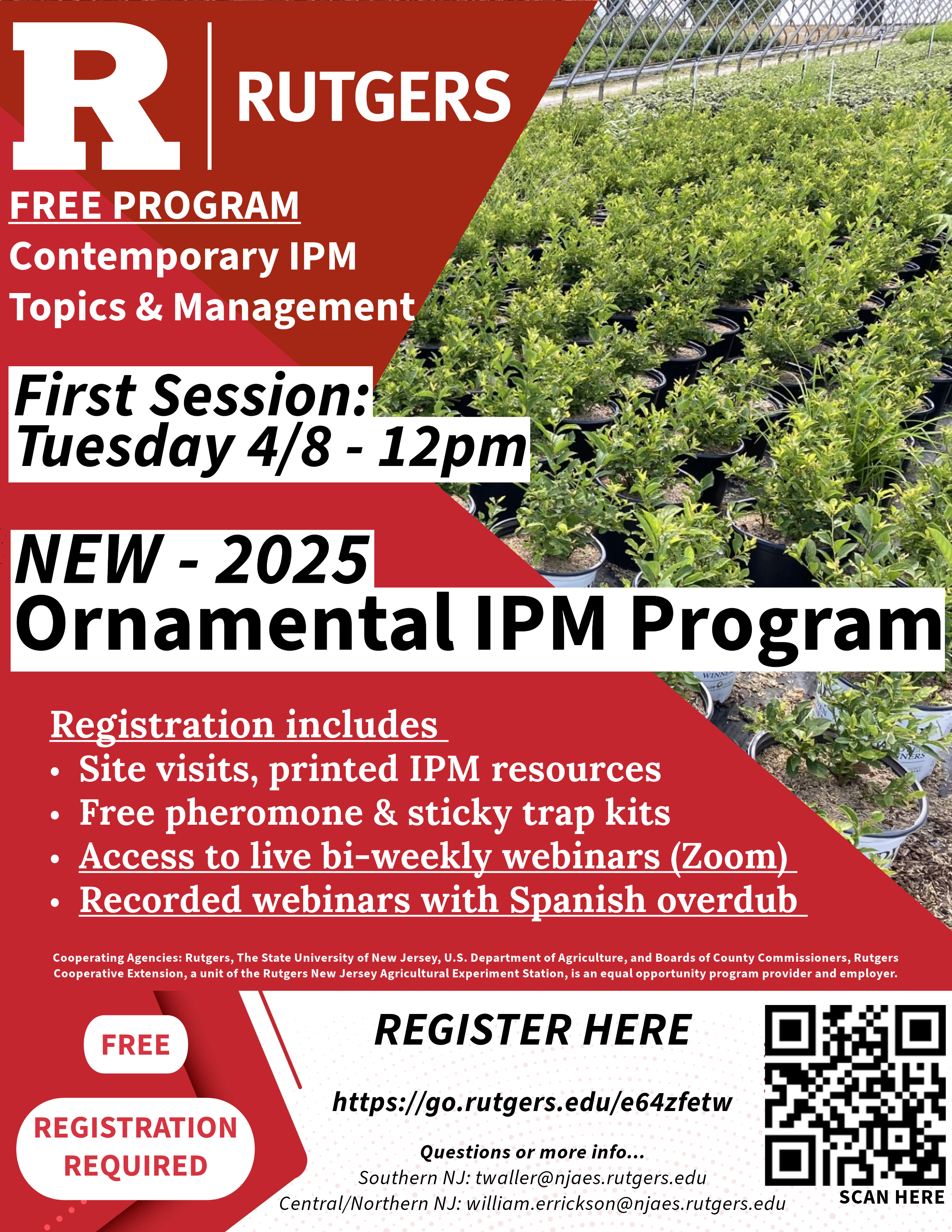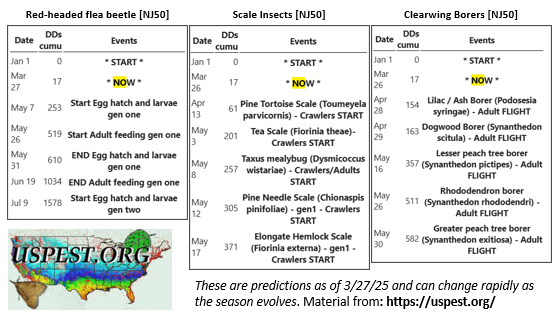Sign up here for the NEW 2025 – Rutgers Ornamental IPM Program
Ornamental IPM – next session is Tuesday 5/13/25
Click here for a PDF of April 22, 2025 webinar that can be printed and used as a field guide or similar
Click here for a VIDEO recording of April 22, 2025 webinar
5/13/25 sessions topics:
Conifer Issues:
- Pine needle scale
- Cryptomeria scale
- Elongate hemlock scale
- Oystershell scale
- Needle cast diseases
- Red headed pine sawfly
- Hemlock woolly adelgid
- Phytophthora in conifers
Ornamental nursery:
- Boxwood mites
- Boxwood psyllid
- Horned and gouty oak galls
- Hawthorn lace bug
- Pythium in nurseries
IPM monitoring:
- Scale monitoring with double sided tape
2025 Registration includes:
The focus of this program is to provide timely updates on pest, disease, and weeds impacting commercial ornamental producers. The webinars will focus on the most important pests for a 2 week interval, will be recorded, and will be shared shortly thereafter with Spanish overdub (spoken word). The trap packages are in an effort to find grower led solutions for monitoring economically important pests throughout the multiple regions of New Jersey. Please consider joining this program for its inaugural year.
- Site visit to your ornamental nursery/farm from Rutgers agents
- Delivered printed IPM resources (Guides, factsheets, bulletins)
- Free pheromone & sticky trap kit + guidance on setup/monitoring
- Access to live bi-weekly webinars (Zoom)
- Every Second and Fourth, Tuesday, April through September
- Webinars will be recorded – posted later with Spanish overdub
This program is free, however registration is required.
(Next webinar Tu 4/22 at 12PM)



 All New Jersey farmers are invited to attend this Farmer Resource Fair which will feature an array of agricultural service providers. In-between a light breakfast and a hearty lunch, there will be engaging presentations and opportunities to visit with service providers at their table displays. The program schedule, as well as a preliminary list of service providers who’ve confirmed their attendance, is included below.
All New Jersey farmers are invited to attend this Farmer Resource Fair which will feature an array of agricultural service providers. In-between a light breakfast and a hearty lunch, there will be engaging presentations and opportunities to visit with service providers at their table displays. The program schedule, as well as a preliminary list of service providers who’ve confirmed their attendance, is included below.